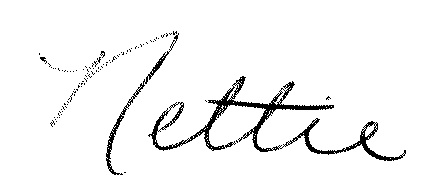What kind of debts do businesses typically have?
Businesses may have a line of credit, which may be unsecured debt, which means essentially there’s no collateral backed by that loan. They may have debt that is backed by collateral, such as real property, for example, as with a property-flipping and renovation business. The loan is typically secured by the property. There are other kinds of secure loans that are secured by personal property as opposed to real property.
Personal property would be accounts receivable, inventory, machinery, business accounts, and things like that. So, there could be unsecured debt or there could be secured debt.
And then, often, smaller businesses have some tax liabilities as well. They may owe amounts to the IRS or to the state of Maryland. All of these different kinds of debt do come into play in the business space.
What typically happens if a business is looking at bankruptcy as an option to manage their debt?
What typically will happen if they’re not able to make the payments, the lender becomes a sort of stonewall, they stop negotiating with the borrower or with the business, they hire a law firm, and the law firm is hired to aggressively collect on that debt. This means letters demanding the full amount of the loan, and what they can typically do, is accelerate the full amount of the loan and demand the whole thing, including interest, attorneys’ fees, and often costs associated with it. And those things can rack up very quickly.
Once a law firm gets involved, it’s not too far before a lawsuit is filed, and everything that goes along with a lawsuit now. There is sometimes a basis to challenge the lawsuit. But the goal of a lawsuit is for the lender to obtain a judgment. When anybody wins a lawsuit, they get a judgment. Judgment can be executed on for various different kinds of collections. And those collections, those are the most insidious things for any borrower. Those look like bank account garnishments. They can look like garnishments from vendors, and things like that. So, that can be very, very disruptive to a business.
When facing bankruptcy or a lawsuit from lenders, bringing on a lawyer helps mitigate some of those risks. It helps give a voice to the owner of the business and helps them navigate that process.
If there is a basis to challenge the lawsuit – and sometimes there is – and we can litigate the lawsuit. Or, if the business decides to deal with all of their debt, they can either shut down or possibly we organize to bankruptcy. And when they organize, they may be able to reduce or eliminate certain kinds of debt.
In the United States, the government has stepped in to provide a lot of support for businesses that are experiencing challenges due to the pandemic and there has been a downturn in the number of bankruptcies filed. But this may change in the future as support wanes from the government.
Not only is there a lot of support for businesses with the paycheck Protection Program, but also the Economic Injury Disaster Loan program.
We also help a lot of individuals and families file for bankruptcy, as well as sometimes, if the owner of the business is personally liable for a personal guaranty they missed, they may want to file for bankruptcy in their own name as well.
What is a personal guarantee?
It’s pretty standard. When anybody gets a loan from any bank, such as a commercial loan for their business, almost always, they have to sign what’s called a personal guarantee. That means they guaranteed all amounts due under the loan. So, if something goes bad, and they cannot make the loan payments, not only will the bank try to come after the business, but they’ll also try to come after the personal guarantors.
For example, if someone has their own business that has to shut down because of COVID, and they go to work for somebody else, if the lender gets a judgment against that person, they can garnish their personal wages. They can try to garnish their personal bank accounts as well.
But when we’re looking at all the PPP loans, the EIDL loans, as well as various moratoriums on eviction, foreclosure, and forbearances on a lot of residential loans for mortgages, that has sort of led to a decline of bankruptcies when we compare it to pre-pandemic.
If your business has had to close, and now you are going back to work, and you’re trying to get things right, then having that bankruptcy option could be really significant to save your family from financial hardship.
What are some options for dealing with business debt?
A lot of people are afraid to even consider bankruptcy because it generally has a negative connotation. But I don’t look at it that way at all.
The purpose of bankruptcy is to help businesses and individuals, or families get a fresh start. That’s the purpose of it. And the way I look at it, it’s a law – like any other law – and you can take advantage of it if you need it.
It’s best to have a consultation and talk over some of the issues, so the business owners or the families can be educated. They can then have some more facts and say, “Okay, this is what bankruptcy looks like and these are the pros and the cons.” And then they can make an educated decision.
I’m happy to talk to anybody. Sometimes I have clients that call me, and they decide it’s not worth it for them. And that’s fine. But at least at that point, they’ve made a more educated decision that’s based on the weighing of the pros and cons of what a bankruptcy will look like.
I love that perspective that this is a law. It’s a safety net that’s been provided. And the reality is in business and in life, things can go haywire. Stuff doesn’t always go right, but it doesn’t mean that you need to go down with the ship.
3 Action Steps
- If you are considering bankruptcy, consult with a lawyer to learn the pros and cons.
- Understand that bankruptcy is an option that can help save you and your family from financial hardships.
- Change your mindset about bankruptcy. Bankruptcy is a way for you to get a fresh start.
Connect with Eric Steiner at: https://www.linkedin.com/in/eric-s-steiner/
Please comment below, I would love to hear from you.















No comments yet.